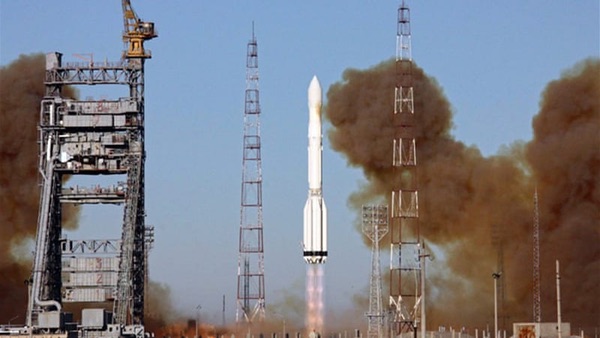Launch failures: fill ’er up?by Wayne Eleazer Monday, September 14, 2020
 A Proton launch in 2010 failed not because it ran out of propellant but instead because it had too much on board. (credit: Roscosmos)
A Proton launch in 2010 failed not because it ran out of propellant but instead because it had too much on board. (credit: Roscosmos)One of the most common causes of airplane accidents is a pilot sitting there and letting the thing run out of gas. This type of mishap is much less common with space launches, but early propulsion system shutdowns due to the vehicle running out of propellant have occurred in some noteworthy cases.
The majority of liquid propellant space boosters ever launched have lacked a system with even as little sophistication as a bewildered pilot staring at a dropping fuel gauge. The engines were tested, the performance noted, and the required amounts of fuel and oxidizer calculated using simple formulas. For vehicles using liquid oxygen (LOX) as the oxidizer, that tank was topped off: a necessity since it kept boiling off until mere seconds before liftoff, when the vent valve was closed. The fuel was loaded based on the calculations, with a bit extra added to provide some margin. Thor, Titan, and Delta all used this approach, as did most foreign vehicles. (...)
https://www.thespacereview.com/article/4025/1